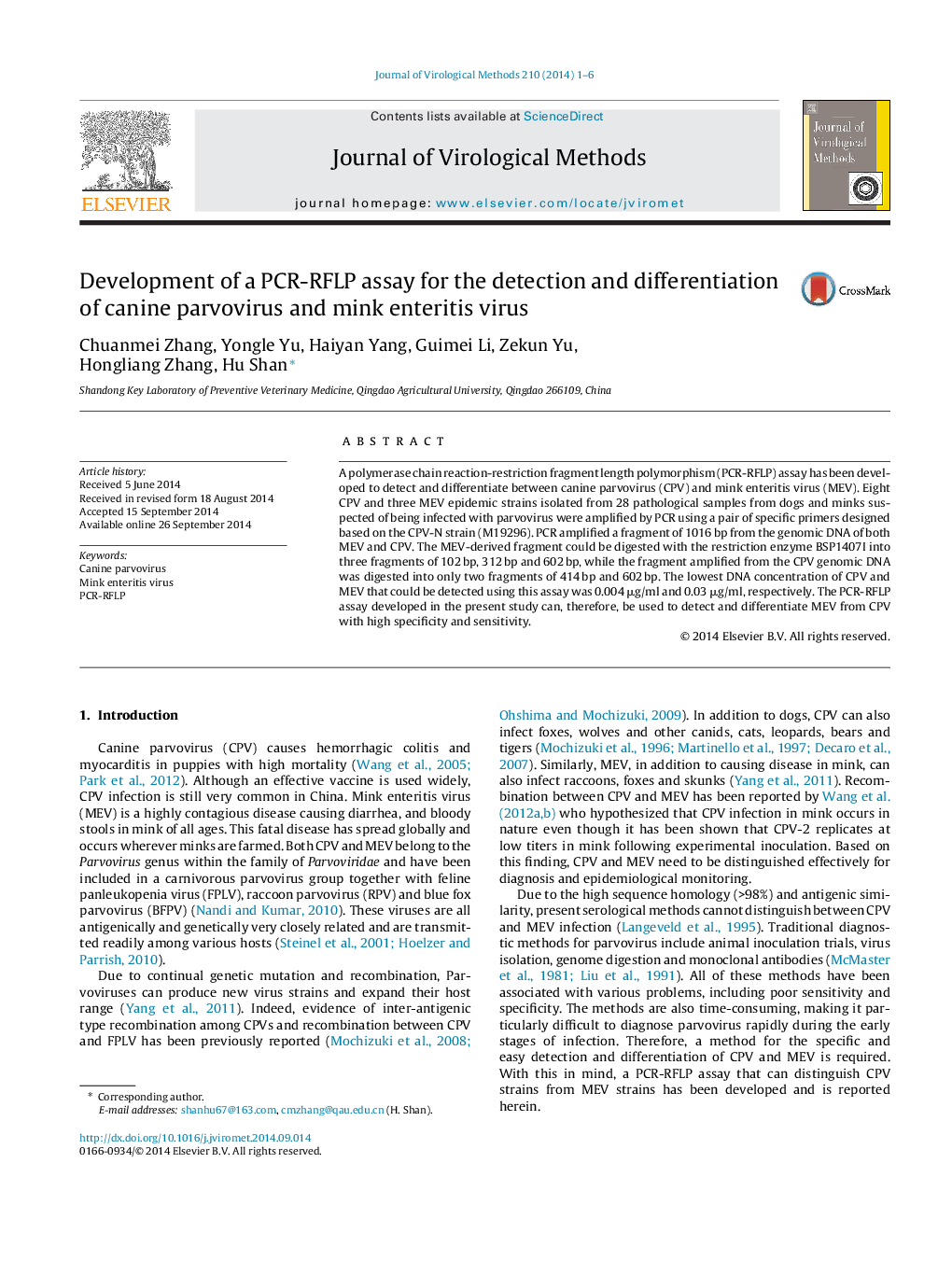| Article ID | Journal | Published Year | Pages | File Type |
|---|---|---|---|---|
| 6133434 | Journal of Virological Methods | 2014 | 6 Pages |
Abstract
A polymerase chain reaction-restriction fragment length polymorphism (PCR-RFLP) assay has been developed to detect and differentiate between canine parvovirus (CPV) and mink enteritis virus (MEV). Eight CPV and three MEV epidemic strains isolated from 28 pathological samples from dogs and minks suspected of being infected with parvovirus were amplified by PCR using a pair of specific primers designed based on the CPV-N strain (M19296). PCR amplified a fragment of 1016 bp from the genomic DNA of both MEV and CPV. The MEV-derived fragment could be digested with the restriction enzyme BSP1407I into three fragments of 102 bp, 312 bp and 602 bp, while the fragment amplified from the CPV genomic DNA was digested into only two fragments of 414 bp and 602 bp. The lowest DNA concentration of CPV and MEV that could be detected using this assay was 0.004 μg/ml and 0.03 μg/ml, respectively. The PCR-RFLP assay developed in the present study can, therefore, be used to detect and differentiate MEV from CPV with high specificity and sensitivity.
Related Topics
Life Sciences
Immunology and Microbiology
Virology
Authors
Chuanmei Zhang, Yongle Yu, Haiyan Yang, Guimei Li, Zekun Yu, Hongliang Zhang, Hu Shan,
